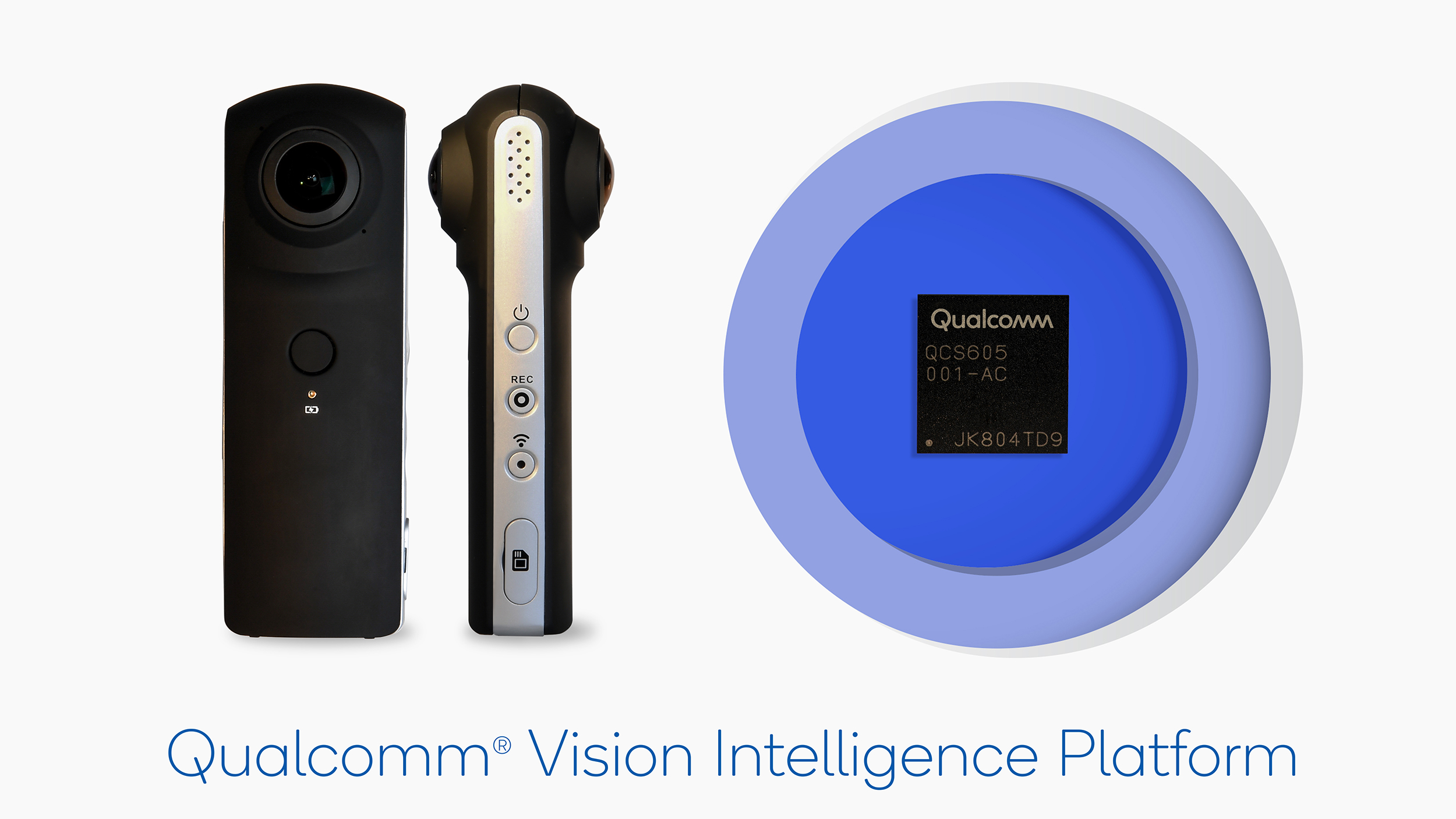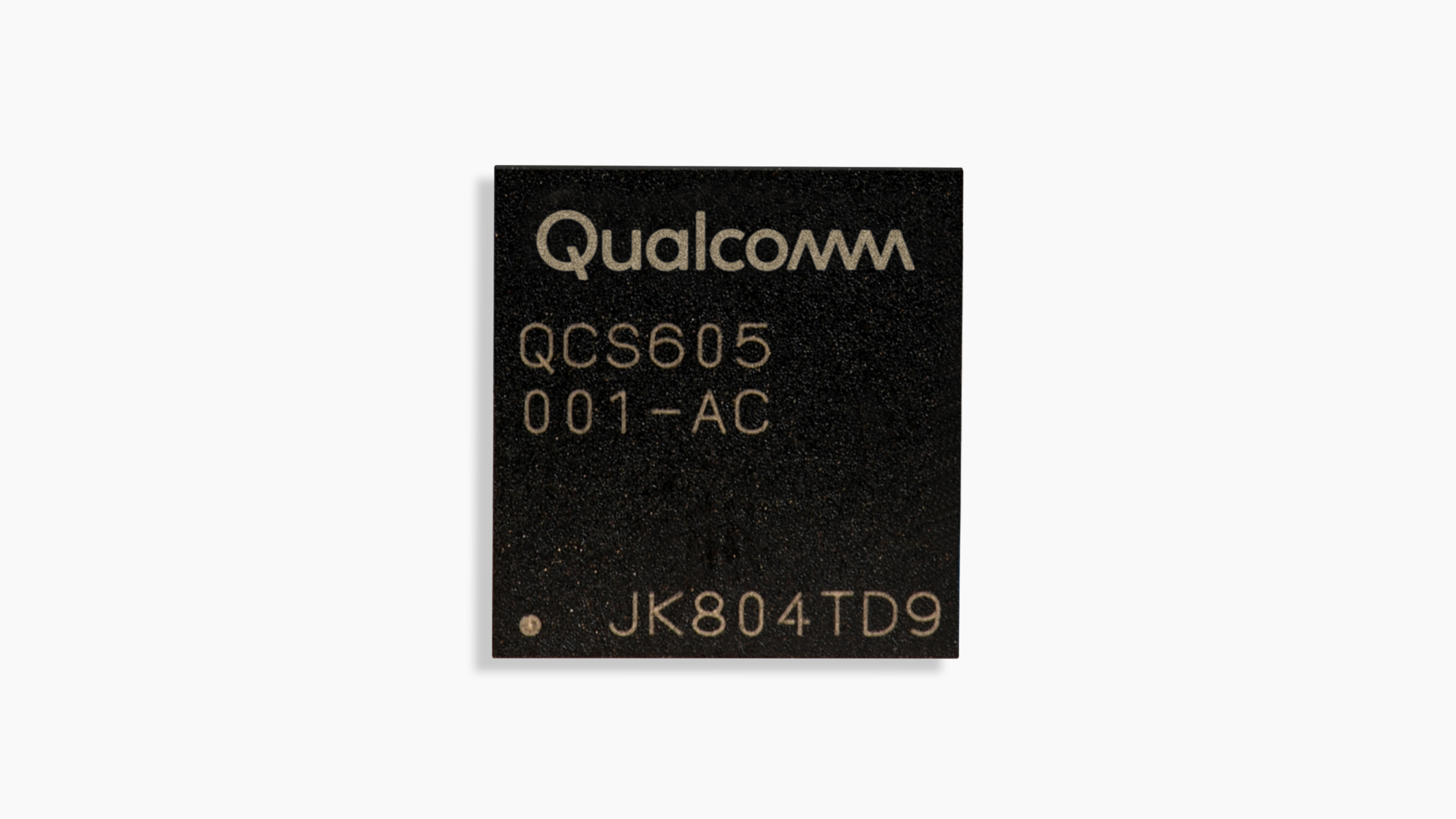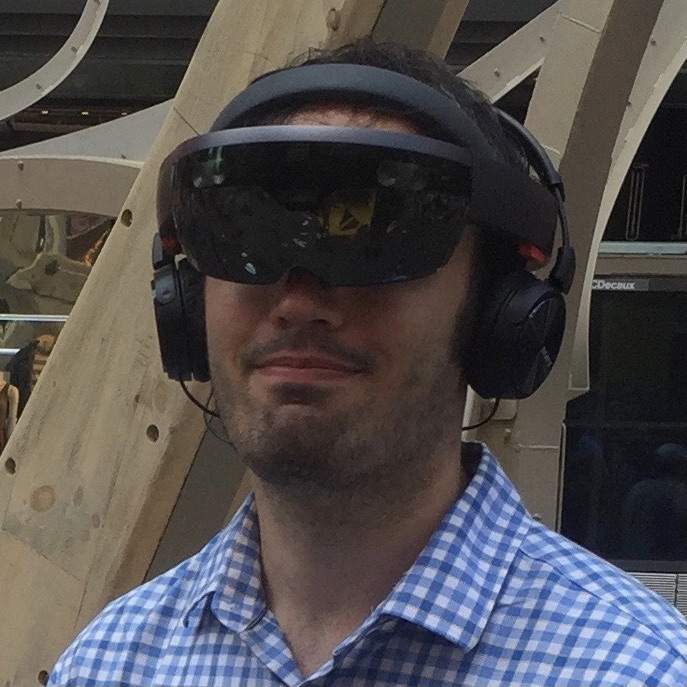Qualcomm's latest chips are designed to speed up, protect your smart devices
Powering security cams, robots and AI tech

Name any cutting-edge tech industry, and Qualcomm has probably stuck its metaphorical nose in and said, “Hey, our chips can make your tech twice as good.”
Just in the last few months, the chip maker developed a “Smart Audio Platform” for better Alexa smart speakers; built the Snapdragon 845 VRDK for room-scale 6DoF VR tracking on standalone headsets, and released an AI engine that improves most smartphones’ task speeds.
Now, using its new AI engine, Qualcomm wants to improve smart home technology by making your Internet of Things (IoT) devices less dependent on the cloud.
In an announcement today, Qualcomm unveiled its new Vision Intelligence Platform, which uses 10-nanometer system-on-a-chip (SoCs) designed specifically for smart home devices, specifically ones with cameras.
Smart security cameras, smart displays, and face-recognizing robots are just a few devices Qualcomm’s SoCs will accommodate.

Two SoCs have been released thus far: the QCS605 and QCS603. These are reportedly capable of powering 4K video at 60 Hz on low-power batteries, and house some impressive-sounding tech: Qualcomm’s Neural Processing Engine for AI tasks, eight Kryo CPU cores and an Adreno GPU for processing power.
Plus, there's support for vision-based tasks like detecting, classifying and tracking actions and objects, says Qualcomm.
Sign up for breaking news, reviews, opinion, top tech deals, and more.
Companies like Ricoh Theda, Kedacom and Altek have already begun to incorporate these SoC chips into their IoT devices. We’ll wait and see if some of the bigger IoT names decide to take Qualcomm’s help as well.
Lightning-fast facial recognition
Most connected tech devices that rely on visual data will register a face or object, send that data to the cloud for analysis, and respond based on that data. It works, but it’s prone to delays and vulnerable to hacking or outages.
With SoC chips and on-device processing, devices like the Nest Cam IQ wouldn’t need to ask Google whether the person at the door is a family member or burglar; the devices would have the processing power to figure that out for themselves, at much faster speeds and inside a closed system.
Joseph Bousaba, VP of product management for Qualcomm, named some other potential applications for the chips, including powering “robots that avoid obstacles autonomously” or “action cameras that learn and generate a video summary of your latest adventure”.
In an interview with Engadget, Seshu Madhavapeddy, Qualcomm's VP of IoT product management, said that the SoCs are powerful enough to register the faces of potential criminals in pitch black environments.

Michael Hicks began his freelance writing career with TechRadar in 2016, covering emerging tech like VR and self-driving cars. Nowadays, he works as a staff editor for Android Central, but still writes occasional TR reviews, how-tos and explainers on phones, tablets, smart home devices, and other tech.